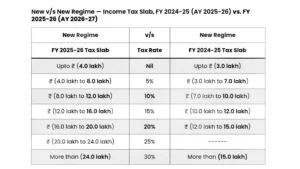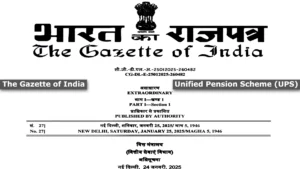
The Unified Pension Scheme shall be applicable to such Central Government employees who are covered under National Pension System and who choose this option under National Pension System. It will have the following features, namely: –
Eligibility under the Scheme
- (i) Assured Payout shall be available only in the following cases, namely: –
- (a) in case of an employee superannuating after qualifying service of ten years, from the date of superannuation;
- (b) in case of the Government retiring an employee under the provisions of FR 56 (j) (which is not a penalty under Central Civil Services Classification, Control and Appeal) Rules, 1965) from the date of such retirement; and
- (c) in case of voluntary retirement after a minimum qualifying service period of 25 years, from the date such employee would have superannuated, if the service period had continued to superannuation.
- (ii) Assured Payout shall not be available in case of removal or dismissal from service or resignation of the employee. In such cases, the Unified Pension Scheme option shall not apply.
In the Gazette notification, page 9, the last line defines the eligibility criteria under FR 56(j) of the CCS (Pension) Rules, for the Unified Pension Scheme.
Definition, Retirement Under FR 56(j) of CCS (Pension) Rules and eligibility Under the Unified Pension Scheme (UPS)
The Government has the absolute right to retire Government officials prematurely on the ground of lack of integrity and ineffectiveness, in public interest, under the provisions of Fundamental Rules (FR) 56(j)/(l), Rule 48 of Central Civil Services (CCS) Pension Rules, 1972.
3. Provisions relating to pre-mature retirement in the Fundamental Rules and CCS (Pension) Rules, 1972.
3.1 The Appropriate Authority has the absolute right to retire a government servant under FR 56(j), FR 56(I) or Rule 48 (1) (b) of CCS (Pension) Rules, 1972 as the case may be, if it is necessary to do so in public interest.
3.2 FR 56(j) :- The Appropriate Authority shall, if it is of the opinion that it is in the public interest so to do, have the absolute right to retire any Government servant by giving him notice of not less than three months in writing or three months’ pay and allowances in lieu of such notice:-
- (i) If he is, in Group ‘A’ or Group ‘B’ service or post in a substantive, quasi-permanent or temporary capacity and had entered Government service before attaining the age of 35 years, after he has attained the age of 50 years;
- (ii) In any other case after he has attained the age of 55 years.
3.3 FR 56(l) :- Notwithstanding anything contained in clause O) the Appropriate Authority shall, if it is of the opinion that it is in the public interest to do so, have the absolute right to retire a Government servant in Group C service or post who is not governed by any pension rules, after he has completed thirty years’ service by giving him notice of not less than three months in writing or three months’ pay and allowances in lieu of such notice.
3.4 Rule 48 (1) (b) of CCS (Pension) Rules, 1972 :- At any time after a Government servant has completed thirty (30) years’ qualifying service, he may be required by the Appointing Authority to retire in the public interest and in the case of such retirement, the Government servant shall be entitled to a retiring pension, provided that the Appointing Authority may also give a notice in writing to a Government servant at least three months before the date on which he is required to retire in the public interest or three months’ pay and allowances in lieu of such notice.
Retirement Under FR 56 (j):
Employees who are retired by the Government under Fundamental Rules (FR) 56(j)—a provision allowing retirement in the public interest for efficiency, before the regular superannuation—are eligible for assured payouts.
Remember: This retirement is not a penalty under the Central Civil Services (Classification, Control, and Appeal) Rules, 1965.
Eligibility to receive benefits –
- 1. Subject to the conditions specified, Unified Pension Scheme benefits shall be available only in the following cases:
- (a) In case of an employee superannuating after qualifying service of ten years, from the date of superannuation.
- (b) In case of Central Government retiring an employee under the provisions of Fundamental Rule 56 (j) (which is not a penalty under Central Civil Services (Classification, Control and Appeal) Rules, 1965) from the date of such retirement.
- (c) In case of voluntary retirement after a minimum qualifying service period of twenty-five years, from the date such employee would have superannuated, if the service period had continued to superannuation.
- 2. Unified Pension Scheme option shall not apply in case of removal or dismissal from service or resignation of the Central Government employee.
If you have any questions, need assistance, or encounter challenges, feel free to share your concerns in the comments. The CountLen team is dedicated to providing quick and effective solutions. If you notice any inaccuracies or misleading information, please provide feedback—we’re here to support you!







